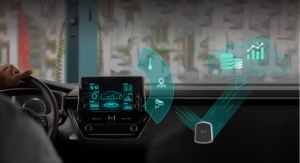As the market for Electric Vehicles(EVs) grows, there’s a greater need for better EV infrastructure. One great way to do this is through the use of the Internet of Things (IoT), which allows for many features like smart charging, battery management, predictive management, and more.
Let’s explore how IoT can benefit the EV industry and some of the challenges associated with its implementation.
Ways IoT Can Be Used for Electric Vehicles
Integrating the Internet of Things (internet de las cosas) in EVs can offer a lot of benefits. Let’s take a look at some of them.
Vehicle Connectivity
The use of IoT allows you to get real-time data about your vehicle.
Some of them include performance indicators, like battery charging and health, engine condition, car security, and tire pressure. This continuous stream of data can be used to analyze the vehicle’s health, which helps maintain operation at optimal capacity.
This real-time monitoring helps you detect potential issues early. Through the use of machine learning and analytics, data can be used to predict any underlying issues that might turn into bigger problems in the future.
Predictive Maintenance
IoT integration can make it easy for EVs to directly connect to charging stations, which can help automate and streamline charging. Because of this, charging stations can also handle the billing digitally without the user needing to make manual payments.
This enhances charging efficiency and simplifies payments, making the charging experience seamless for EV owners.
Car-to-infrastructure (coche a infraestructura) communication allows smart traffic management, meaning that EVs can get traffic light information in real-time, which can help reduce stop times.
Personalized User Experience
Smart systems in vehicles can help provide a custom experience for each user. This can help improve customer satisfaction and even brand loyalty.
The system can learn a user’s behavior over time and suggest routes based on previous information. Electric vehicles can also use IoT to get traffic information to navigate the user without any traffic jams.
Through information learning, EVs can also remember a user’s music choice and climate settings, making sure to adjust them automatically once the user enters the vehicle.
Charger Management
IoT allows for remote management and monitoring of the charging infrastructure, whether it’s your home electric vehicle charger (cargador de vehículos eléctricos domésticos) or a dedicated charging station, since they can communicate over the internet.
IoT devices can get real-time information about energy usage, which can help generate an accurate bill. Home EV chargers can also give real-time information over the internet as long as there is a fast and consistent connection.
Spectrum is a great example of a provider that offers fast and reliable internet for use in IoT applications. They also offer dedicated customer service to Spanish-speaking customers.Browse through Spectrum en español to subscribe to fast internet and get access to their Out-of-Home Wi-Fi, which you can use nationwide.
Some chargers allow you to monitor and adjust power demand through your phone in real-time to make sure energy is used efficiently.
Benefits of Using IoT for the EV Industry
The integration of IoT in EVs has become a huge talking point in the car industry, mainly because of some of the applications we discussed above. Let’s look at some of its benefits:
- Better User Experience: Most EV manufacturers provide custom apps that can be used to view accurate information. This allows you to plan your journey, locate chargers, and monitor performance.
- Improved Efficiency: EVs have various sensors in components like batteries, charging systems, motors, and cabins. Through these, data can be analyzed and used to improve range and energy efficiency.
- Saving Costs: IoT sensors can detect any anomalies and signs of failure in order to address them before they can have an impact. This approach can help mitigate risks and reduce downtime, and repair costs, which increases the cost-effectiveness of EVs.
Challenges Associated With Iot in EV
While there are a lot of benefits to using IoT in the EV industry, it also has a few challenges.
- Standardization: IoT includes a huge amount of systems from various manufacturers. This is why it’s important to develop and implement a standard protocol to ensure that multiple IoT systems and devices can work together.
- Integration: Many systems that already exist in the EV industry aren’t designed with IoT integration in mind. This is why integrating IoT into legacy systems requires a lot of time and resources. Charging stations and EVs need to be updated and upgraded regularly to implement the latest technologies.
- Security: IoT gathers and sends huge amounts of data. This is why it’s crucial to implement security systems that can help protect user data from cyberattacks and unauthorized access. It’s also extremely important to follow privacy regulations to ensure user data is handled in a confidential and appropriate way.
However, with the rapid rise in demand for EVs, manufacturers are already looking to expand the industry by adding more features like personalized card services as well as advanced energy management systems. With the integration of ML, AI, and IoT tech, there’s a lot of potential in the EV industry.

